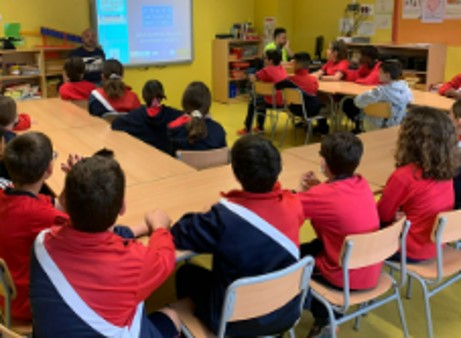NO PASSIS DE RODA A RODA
NO PASSIS DE RODA A RODA (Dont’s Go from Wheel To Wheel) is a LALLIGA program aimed at the Educational Community. Initiated in the 90’s in Schools, High Schools and Universities, it aims to PROMOTE VALUES, HEALTHY ATTITUDES AND HABITS towards the problems of people with disabilities
This program is based on the conviction that any change in the mentality of society begins with the education of the people who make it up. By placing special emphasis on the youngest members of society it hopes they will shape the future society and will nurture it with the values they have incorporated into their lives and actions.
PROACTIVITY
It also provides a vision of UNIVERSAL ACCESSIBILITY and learning on how to detect architectural and urban barriers that hinder the daily life of the group. All this, while collaborating in forming respectful and PROACTIVE citizens towards the group of people with disabilities in order to make a fairer society for all.
VALUES

VIRTUAL FORMAT
The proposal emerged in 2022, which consisted of carrying out the programme using the FLIPPED CLASSROOM method and a WEBINAR with the monitors with disabilities, followed by a proactive action to defend UNIVERSAL ACCESSIBILITY.
També es va tenir especial cura en respectar i mantenir la mateixa filosofia i l’esperit de fomentar valors, actituds i hàbits de vida saludable i donant a conèixer una realitat moltes vegades desconeguda i més habitual del que podria semblar.
THE PROGRAMME
No Passis de Roda a Roda (face-to-face)
- Presentation of the organisation, the different types of disability and the programme activities to be carried out
- Interactive talk with one/two people with physical disabilities about the daily life of a person with a disability, the difficulties they encounter and how they try to overcome them.
- Carrying out a practical activity chosen by the school (such as the practice of an adapted/unified sport or a circuit of detection of architectural barriers in the school space).
- The activity is complemented with a final activity of Proactivity, in which pupils analyse some spaces in their environment to detect architectural and urban barriers and take photographs that they send to the league or elaborate short sentences after reflecting on what they have experienced during the activity.